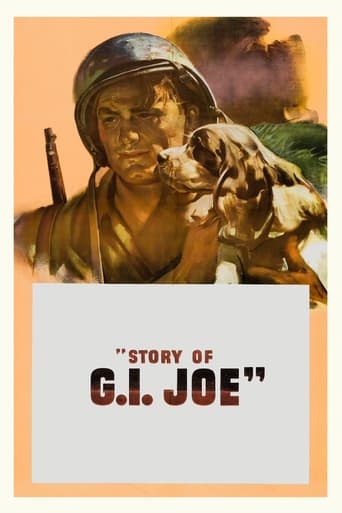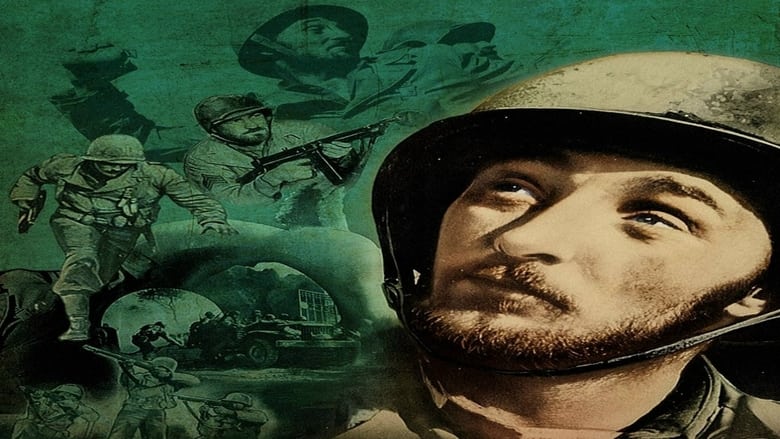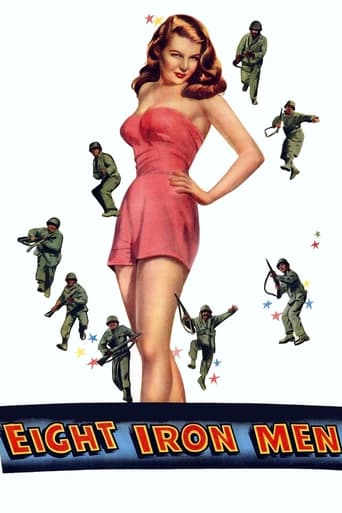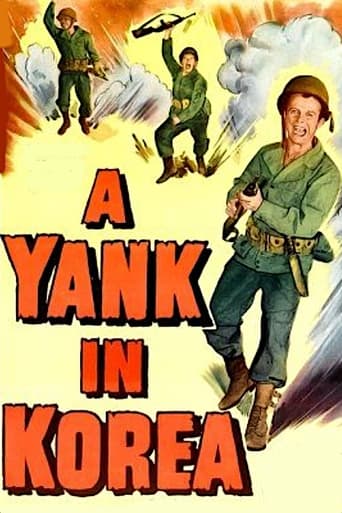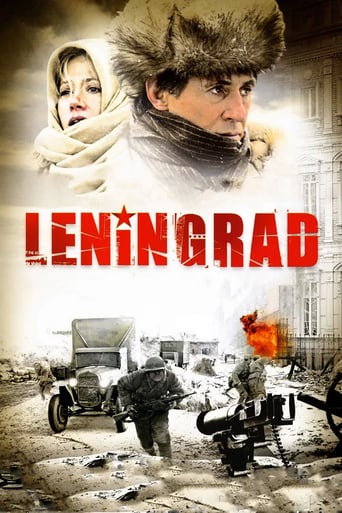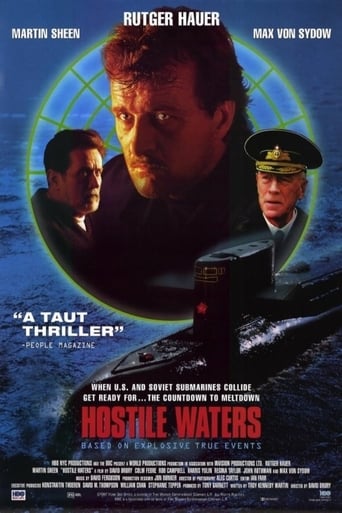Story of G.I. Joe (1945)
War correspondent Ernie Pyle joins Company C, 18th Infantry as this American army unit fights its way across North Africa in World War II. He comes to know the soldiers and finds much human interest material for his readers back in the States. Preserved by the Academy Film Archive in partnership with The Film Foundation in 2000.
Watch Trailer
Cast
Similar titles



Reviews
Too much of everything
Film Perfection
It’s fine. It's literally the definition of a fine movie. You’ve seen it before, you know every beat and outcome before the characters even do. Only question is how much escapism you’re looking for.
This is a coming of age storyline that you've seen in one form or another for decades. It takes a truly unique voice to make yet another one worth watching.
The US North African and Italian campaigns of World War 2, as seen through the eyes of a company of infantrymen. More particularly, this is the story of Ernie Pyle, famed war correspondent. His writings brought the war home to America and told the story of the war from the perspective of the average US soldier.Good depiction of the US North African and Italian campaigns of WW2, as seen from the perspective of average infantry soldiers, and a distinguished journalist. Initially not that engaging, it gets better as it goes along. Very gritty by the end.Solid performances from Robert Mitchum and Burgess Meredith. Good supporting performances too.
"The Story of GI Joe" is a biography – and almost feels like a documentary – of the famous US World War II correspondent Ernie Pyle (played by Burgess Meredith) as he covers the gritty exploits of Company C of the US 18th Infantry. The director, William Wellman, based the movie upon Pyle's Pulitzer Prize winning book. Pyle was a rare breed. He insisted on being on the front lines with our GIs so as to get the right account of what was really happening with the average Joe. His purpose was not to carry a weapon but to take notes and send true stories back home about young soldiers who expressed their fears and concerns, and who felt their way thorough their first combat. Pyle stuck with the soldiers through heavy rains, mud holes, flowing streams, and combat situations. Pyle's dispatches showed the home front parents what their boys were going through. Initially the slow-paced film begins in North Africa (February 1943) and covers the American reverse at the hands of the Axis forces of Field Marshall Rommel at the Kasserine Pass. After that it moves quickly over the American victories in Africa and the conquest of Sicily. Then the rest of the movie's focus is the war in Italy (up to the capture of Rome), especially the battles of San Vittorio and Mt. Cassino (a sixth century abbey). As for the latter, the Germans did not use its strategic position until it was bombed. But the rubble made them a favorable defensive position. The US soldiers – mechanics, construction men, office workers, etc. before the war – are well led by the humane Lt. Walker (Robert Mitchum). Walker, outside of Pyle, gets the most attention. But Sgt. Warnicki (Freddie Steele), Pvt. Donaro (Wally Cassel), and Pvt. Murphy (John Reilly) also have sizable parts to play. When Warnicki enters a bombed out Catholic Church to pray, he leaves his helmet on. It's a good thing he did so. Donaro confronts a frightened Italian woman, but note her relief when he speaks Italian. Murphy's company gives him the use of a most unusual bridal suite after he marries his fiancée, a nurse. Supporting roles were also played by actual combat veterans of North Africa, Sicily, and Italy. Meredith comes across very well as the sincere and humble war correspondent. The movie is convincing and natural: There are no heroics here, no John Wayne valor, no patriotic slogans. General Eisenhower called this the greatest war movie that he had ever seen. Ironically, the real Ernie Pyle never saw this movie. It premiered in 1945, after the fall of Germany (European Theater of Operations, ETO) but with the Pacific Theater of Operations (PTO) still in progress. Pyle had already left Europe for the western Pacific, and was killed during the last battle of the war (Okinawa) in April 1945.
The Story of G.I. Joe is a historic film. It's the first truthful look at the infantry men during WWII. there is rain and mud and snow and ice and horror beyond all horror. Loneliness and love. And Men who break during Combat and men who die. Ernie Pyle lived that life marching the same mud filled roads as the Joes and watching the smiling youthful faces full of hope turn old and full of bitterness and regret. Pyle knew what he was talking about he lived it alongside the soldiers that helped win a war. He suffered as they suffered and told their story as honestly as he could and in the end this made Pyle the most beloved War correspondent of his time . And maybe for all time. Pyle had a hand in the making of this film. I've noticed there are people who say this film is dated. Of course its dated Time marches on. and everything changes War changes. This is a look at the War as it was during the years 1939 -1945. Of course its set in the year 1944. And that's why it feels dated to those who were not there. For kids raised on WWII films like saving private Ryan and Band of Brothers with those films you get a good Technicolour look at WWII and a modern feel. But what people forget is back in 1945 there were severe limits placed on what you could see in a movie. This film captures the feel and the essence of what it was like to be a G.I .Joe. Robert Mitchum was made a superstar in his star making role here. The scene that made him a star in which Captain Walker talks about the New ones is perfect and heartfelt. And Ernie Pyle's spirit comes thru as much as his love and affection for the fighting man. with that perfect last line. "For those beneath the wooden crosses there is nothing we can do except pause..and murmur thanks pal thanks ." that sums it up perfectly. Incredible film and a eye opener of what it was like to be a G.I. Joe.
The quote uttered by Captain Walker in the film,"The new kids that come up, that's what gets you. The new ones, some of them have just got a little fuzz on their faces. They don't know what its all about. Scared to death. You know, Ernie, I know it ain't my fault that they get killed, but it makes me feel like a murderer. I hate to look at 'em, the new kids." was based on something told to Ernie Pyle by Sergeant Buck Eversole of the 34th Infantry Division, as reported in a biography of Ernie Pyle in the book "Ernie's War: The Best of Ernie Pyle's World War II Dispatches." BTW: the story of "Captain Walker" as show in the movie was essentially true, even about how his men felt about his death, but the real captain was named Henry Waskow.
